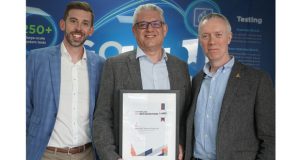Employers and employees have a differing opinion about the health and wellbeing impact of ‘hybrid’ working, according to new research from GRiD, the industry body for the group risk sector.
Two thirds of employers (64 per cent) believe that hybrid working has had a positive impact on their employees’ health and wellbeing, but only 53 per cent of employees agree. Where they do concur is on the number of people for whom hybrid working can have a negative impact, with six per cent of employers, and seven per cent of employees, acknowledging that it is not a positive experience for everyone.
GRiD believes it’s important to recognise that although this might look like a relatively small percentage of people who feel that hybrid working has had a negative impact on their health and wellbeing, it represents a large number of employees. While many people feel that a flexibility in working location is beneficial, it’s crucial that employers don’t make assumptions or change their workplaces or working practises in a way that could potentially be harmful to their workforce.
Of those employees themselves who felt that hybrid working has had a positive effect, mental wellbeing was the area that employees felt was most improved (68 per cent), followed by social wellbeing (45 per cent), financial wellbeing (44 per cent) and physical wellbeing (43 per cent). Although mental health is clearly seen as the largest beneficiary of hybrid working, and the reduced costs of commuting are associated with financial health, GRiD says it’s interesting that so many employees reported on the social and physical benefits too.
Half (50 per cent) of employees say they have a choice about whether to work from the office or home which largely tallies with the statistics reported by employers: 22 per cent of employers said that they have given all their employees a choice about where they work from, and 34 per cent have allowed some but not all of their employees to make that decision.
While there is indeed a positive impact on health and wellbeing for many, employers must not consider hybrid working as a benefit in itself. It is no replacement for a comprehensive programme of benefits to support health and wellbeing, such as private medical insurance or group risk benefits (employer-sponsored life assurance, income protection and critical illness). When an employee struggles with a health or wellbeing issue, it’s important to have a full suite of support available. Working from home may help some but not all and it certainly isn’t a fix when more serious problems come to light.
Katharine Moxham, spokesperson for GRiD, said: “Employers have a slightly exaggerated view of just how much hybrid working is benefitting the health and wellbeing of their staff. It’s clearly the case that many do find it a positive experience but employers should be careful not to assume this is a panacea for everyone. It’s important to note that health and wellbeing support will still be required for everyone, and particularly for those who have found the change in working patterns more difficult to cope with.”
Moxham added: “Employers who fully support the health and wellbeing of their staff through a programme of employee benefits and other flexible policies, will be rewarded with more a more engaged and more proactive workforce. Hybrid working can play a role but it’s not the silver bullet.”
With the current economic crisis resulting in higher prices and more of a squeeze on resources, FMs need to ensure that they have robust building and maintenance services in place to control costs and reduce the need for emergency repairs. When it comes to drainage and plumbing there are also the challenges of dealing with extreme weather, from droughts to flooding, the need to meet stringent regulations and to avoid causing environmental damage.
UK drainage specialist, Metro Rod, has launched a survey which explores the main areas of interest for FMs in maintaining drainage and plumbing, including how they currently assess their supply chains to ensure they’re working with partners that meet the highest possible standards and provide value for money.
The results will be published online so that you can see how you compare to others within the sector.
The survey should take just 5-10 minutes of your time, and as a thank you, you will be entered into a prize draw, where one lucky winner will be picked at random to receive a £100 Amazon voucher.
To take part click here.




